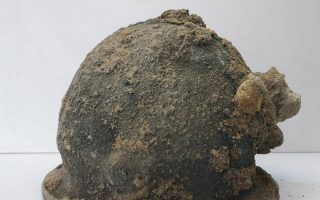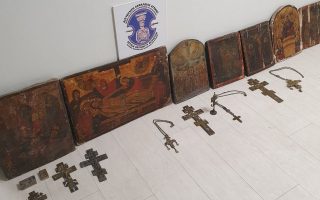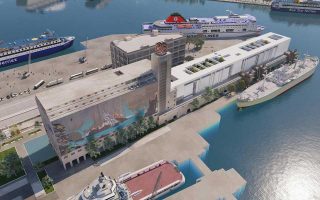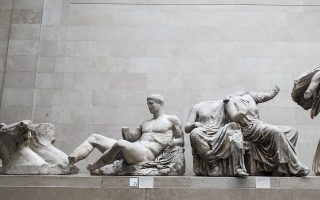Resurrecting the ancient little theater of Epidaurus
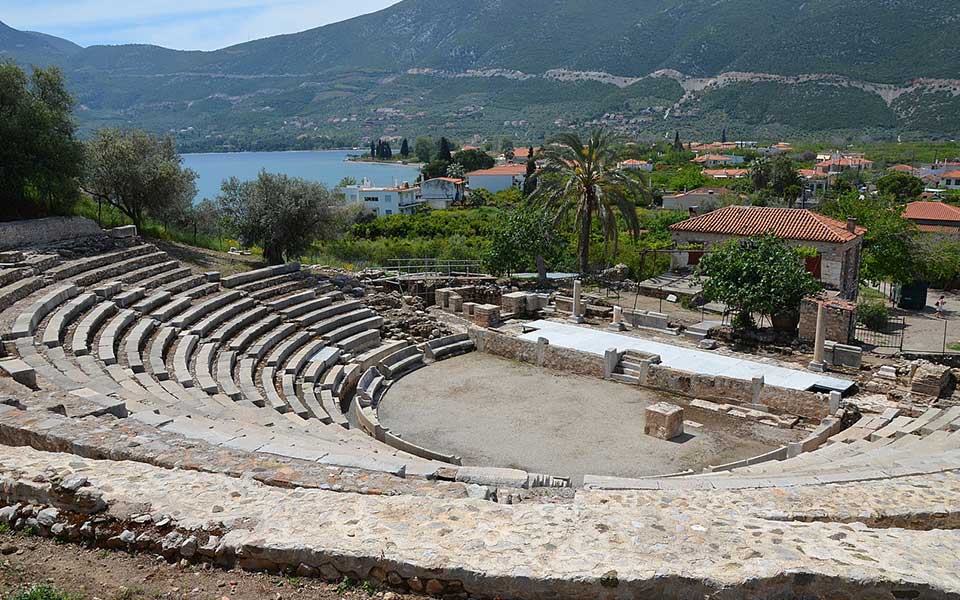
Perched on the slopes of the small, hilly Nisi peninsula, overlooking the Saronic Gulf, the well-preserved remains of the Little Theater of Epidaurus is a picture-postcard example of an ancient Greek theater; a miniature version of its much bigger sister, the iconic 12,000-seat Epidaurus Ancient Theater at the nearby Sanctuary of Asclepius.
Dedicated to Dionysus, the ancient Greek god of theater, wine and revelry, construction of the Little Theater began in the mid-4th century BC. It was in use for around 700 years before falling into disuse and eventual abandonment, remaining buried under layers of earth for 18 centuries before being rediscovered in the early 1970s by local farmer Christos Zafiris.
In a recent interview with The Guardian, Athens University Professor Vassilis Lambrinoudakis commented: “They say that had it not been for pigs digging at the soil, we might never have known of its existence.”
The classical archaeologist, a specialist in the history and architecture of ancient theaters, has spent decades working on the extraordinary site, 150 kilometers southwest of Athens. Since the 1990s, members of his excavation team have uncovered stone seats carved with the names of horegoi (sponsors) and civic officials, shedding light on the history of those who commissioned the theater, and revealed multiple phases of construction and modification from the mid-4th century BC to the Roman period.
Unlike its big sister, designed to seat thousands of pilgrims from across the ancient Greek world at major religious festivals, the Little Theater was built for the inhabitants of the small city of Epidaurus itself, seating around 2,000 people in a more intimate setting overlooking the sea.
Systematic excavations at the site have uncovered 9 concentric tiers with 18 rows of benches, arranged around a semi-circular orchestra. Acoustically and aesthetically on a par with its bigger, more famous sibling, a comprehensive reconstruction program, overseen by the Committee for the Conservation of the Monuments of Epidavros (CCME), aims to gradually increase the number of available seats for future public performances.
“More than any other remnant of the past, ancient theaters speak to us. They contain a message of life that modern society has a thirst to share. It is our duty to bring them alive,” Professor Lambrinoudakis said in The Guardian article.
The ongoing excavation and restoration works at the Little Theater of Epidaurus are part of an ambitious mission to revive ancient theaters across the country, with the aid of sponsorship and EU funds.
The Greek NGO, Diazoma, set up in 2008 to promote the conservation and enhancement of ancient theaters, has mapped no fewer than 140 historic arenas across the country. In the course of their work, around 40 sites have been renovated, placing them at the heart of archaeological parks and linking them on cultural heritage trails, most recently in Epirus.
Diazoma founding member Stavros Benos campaigns passionately for the monuments to be regarded not as “dead things,” but as “living organisms,” reintegrated them back into community life: “From antiquity, they are the only monuments to have had the same use. Because of their harmony, their architectural beauty and their relationship to the natural environment, people have a particular fondness for them. It’s why they’re so symbolic.”
At the Little Theater of Epidaurus, work continues in the hope that one day, in the not too distant future, it will once again host public performances as part of the summertime Athens Epidaurus Festival, attracting visitors from around the world.
This article first appeared in Greece Is (www.greece-is.com), a Kathimerini publishing initiative.

